40 diagram of alternation of generations
Diagram showing the alternation of generations between a diploid sporophyte (bottom) and a haploid gametophyte (top) Typical moss: green haploid body and brown diploid sporophyte The term alternation of generations is used to describe an alternation of forms in the life cycle of plants (and some protists ). Match. Gravity. Place the structures and events in the diagram of the plant alternation of generations. Click card to see definition 👆. Tap card to see definition 👆. Mitosis of haploid cells. Haploid egg. Haploid sperm. Fertilization.
The diagram below illustrates the alternation of generations that is characteristic of the angiosperm life cycle. Label structures and processes (using white labels), indicate whether different structures are haploid or diploid (using pink labels), and indicate the types of cell division that occur at different points in the life cycle (using ...

Diagram of alternation of generations
Alternation of generations life cycle a life cycle in which diploid individuals produce spores that create haploid individuals; the haploid individuals reproduce sexually, producing sporophyte individuals and completing the cycle Therefore, a true alternation of generations is always between a diploid asexual and haploid sexual generations, as is exhibited by fern plant. But, in Obelia the condition is somewhat different and, therefore, objections were raised to use the term alternation of generations for it. Complete the diagram to show the life cycle of a typical animal. Follow these steps: 1. First, drag blue labels onto blue targets only to identify each stage of the life cycle. 2. Next, drag pink labels onto pink targets only to identify the process by which each stage occurs. 3.
Diagram of alternation of generations. 26.3.2019 · This diagram shows the alternation of generations between the diploid sporophyte and the haploid gametophyte. Examples of Sporophyte. Sporophytes are referred to as spore-producing plants. However, it is important to take note of the fact that all plants produce spores. May 16, 2019 · The diagram below illustrates the alternation of generations that is characteristic of the angiosperm life cycle. Label structures and processes (using white labels), indicate whether different structures are haploid or diploid (using pink labels), and indicate the types of cell division that occur at different points in the life cycle (using blue labels). Label this diagram of alternation of generations life cycle. Step-by-step solution. Step 1 of 5. In land plants the diploid sporophyte generation alternates with haploid gametophyte generation. Therefore, the life cycle of land plants is called diplo-haplontic life cycle. The given diagram of alternation – of generations’ life cycle is ... This problem has been solved! Who are the experts? Experts are tested by Chegg as specialists in their subject area. We review their content and use your feedback to keep the quality high. Transcribed image text: Complete this diagram of a "generic" alternation of generations.
So we are being asked to label a diagram called Alterations of Generations. So first, let's see what is meant by alterations of generations. So suppose that we have Generation one. It gives rise to generation too. And the generation to gives rise to generation three and so on. And alterations of generations means that the first generation would be deployed. Alternation of generations is a term primarily used to describe the life cycle of plants. 2. A multicellular gametophyte, which is haploid with n chromosomes, alternates with a multicellular sporophyte, which is diploid with 2n chromosomes, made up of n pairs. 3. A mature sporophyte produces spores by meiosis, a process which reduces the number ... Diagram of alternation of generations in liverworts. Moss life cycle diagram. Hornwort life cycle diagram. In ferns and their allies, including clubmosses and horsetails, the conspicuous plant observed in the field is the diploid sporophyte. The haploid spores develop in sori on the underside of the fronds and are dispersed by the wind (or in ... What is alternation of generations? Plant Life Cycle, Alternation of Haploid and Diploid Stages. Draw a diagram of alternation of generations: What is the name for the scar seen on a spore where the four spores, the products of meiosis, were formerly attached? Trilete Mark.
Diagram showing the alternation of generations between a diploid sporophyte (bottom) and a haploid gametophyte (top) Alternation of generations (also known as metagenesis or heterogenesis ) [1] is the type of life cycle that occurs in those plants and algae in the Archaeplastida and the Heterokontophyta that have distinct haploid sexual and ... Aug 22, 2021 · Alternation of generations diagram. Once the cells have divided and created a multicellular structure, it is now called a gametophyte. We can see on our diagram that the gametophyte contains many ... Alternation of generations is a type of life cycle found in terrestrial plants and some algae in which subsequent generations of individuals alternate between haploid and diploid organisms. This can be contrasted to sexual reproduction in animals, in which both haploid and diploid cells are found in every generation. Start studying Chapter 29 & 30.1. Learn vocabulary, terms, and more with flashcards, games, and other study tools.
The way in which the alternation of generations occurs in plants depends on the type of plant. In bryophytes (mosses and liverworts), the dominant generation is haploid, so that the gametophyte comprises what we think of as the main plant. The opposite is true for tracheophytes (vascular plants), in which the diploid generation is dominant and ...
Bryophytes : Alternation of Generations . In common with all land plants and some advanced algae such as Laminaria, bryophytes exhibit alternation of generations. Two types of organism, a haploid gametophyte generation and a diploid sporophyte generation, alternate in the life cycle. The cycle is summarized in the fig below.
Diagram showing the alternation of generations between a diploid sporophyte (bottom) and a haploid gametophyte (top) Alternation of generations (also known as metagenesis or heterogenesis) [1] is the type of life cycle that occurs in those plants and algae in the Archaeplastida and the Heterokontophyta that have distinct haploid sexual and diploid asexual stages.
The following diagram gives one example of a bryophyte life cycle, that of the moss Funaria hygrometrica. ... The bryophytes are often said to show an alternation of generations. You may see references to the "gametophyte generation" and the "sporophyte generation" alternating.
Diagram showing the alternation of generations between a diploid sporophyte (bottom) and a haploid gametophyte (top) Alternation of generations (also known as metagenesis ) is a term primarily used to describe the life cycle of plants (taken here to mean the Archaeplastida ).
I. Alternation of Generations in Plants: Processes and Terminology The painful part comes first: knowing the general course of events, and what each life cycle stage and structure is called. A. An Overview of Alternation of Generations In the plant life cycle, generations alternate between a diploid (2n) sporophyte and a
13.12.2021 · User: Plants have a life cycle that is called the alternation of generations.The two phases of this life cycle are the diploid stage and the _____ stage. Weegy: Sporophyte is the name of the diploid stage of the plant life cycle. |Score .7527|Star-Lord|Points 699| User: A plant structure that contains a full set of paired chromosomes is called a _____.
Alternation of generations is common in plants, algae, and fungi. This can be compared to the sexual reproduction in animals where both haploid and diploid cells are found in every generation. Plants alternate between the diploid sporophyte and haploid gametophyte, and between asexual and sexual reproduction .
Alternation of generations occurs in almost all marine algae. In most red algae, many green algae, and a few brown algae, the phases are isomorphic and free-living. Some species of red algae have a complex triphasic alternation of generations. Kelp are an example of a brown alga with a heteromorphic alternation of generations.
Alternation of generations is the alternation of a sexual phase and an asexual phase in the life cycle of an organism. Spirogyra is a cosmopolitan, freshwater, filamentous green alga, represented by about 300 species. It is commonly known as pond silk, water silk, pond scum, or mermaid’s trees because of their bright green silky appearance.
Non-vascular plants are plants without a vascular system consisting of xylem and phloem.Instead, they may possess simpler tissues that have specialized functions for the internal transport of water. Non-vascular plants include two distantly related groups:
Alternation of generations is a life cycle that includes both diploid and haploid multicellular stages. Remember that 'diploid' means 'two sets of chromosomes' and is commonly abbreviated as 2 n ...
Alternation of generations is a reproductive cycle of certain vascular plants, fungi, and protists. The term is a bit confusing for people familiar only with the life cycle of a typical animal. A more understandable name would be "alternation of phases of a single generation" because we usually consider a generation of a species to encompass one complete life cycle.
Transcribed image text: The diagram below illustrates the alternation of generations that is characteristic of the angiosperm Ife cycle Label structures and processes (using white labels), indicate whether different structures are haploid or diploid (using pink labels), and indicate the types of coll division that occur at different points in the life cyde (using blue labels) Drag the labels ...
Diagram of alternation of generations (metagenesis), which describes the life cycle that occurs in certain plants that have distinct sexual haploid and asexual diploid stages.
Gymnosperms undergo alternation of generations, alternating between the diploid sporophyte and the haploid gametophyte. In conifers, the mature sporophyte produces two types of cones, in which diploid microsporangia and megasporangia develop. A cell in microsporangia divides by meiosis to form haploid microspores.
The life cycle of ferns is different from other land plants as both the gametophyte and the sporophyte phases are free living. This interactive illustrates the alternation of generations in ferns. Transcript Meiosis. Meiosis is a type of cell division that produces gametes – cells that contain half the number of chromosomes than the parent cell.
Diagram of the alternation of generations life cycle Previously, we used the Garblinx to illustrate the oddity of this. Remember that the diploid or 2 N organism looks like this.
Alternation of generations (also known as metagenesis or heterogenesis) is the type of life cycle that occurs in those plants and algae in the Archaeplastida and the Heterokontophyta that have distinct haploid sexual and diploid asexual stages. In these groups, a multicellular haploid gametophyte with n chromosomes alternates with a multicellular diploid sporophyte with 2n …
13.12.2021 · Plants have a life cycle that is called the alternation of generations. The two phases of this life cycle are the diploid stage and the _____ stage.
1. Understand the alternation of haploid and diploid individuals in the plant life cycle. 2. Understand the terminology used to describe parts of the life cycle, and recognize what each life cycle stage looks like in the major plant taxa. 3. Acquire a more "personal" understanding of how the alternation of generations works by
Alternation of generations describes a plant's life cycle as it alternates between a sexual phase, or generation and an asexual phase. The sexual generation in plants produces gametes, or sex cells and is called the gametophyte generation. The asexual phase produces spores and is called the sporophyte generation.
Alternation of generationsAlternation of generations in plantsFlowchart of Alternation of generationsDiagram of alternation of generations in plantsConcepts ...
bioweb. The life cycle of the fern has two different stages; sporophyte, which releases spores, and gametophyte, which releases gametes. Gametophyte plants are haploid, sporophyte plants diploid. This type of life cycle is called alternation of generations. To follow the life cycle of the fern, begin at number one below.
Complete the diagram to show the life cycle of a typical animal. Follow these steps: 1. First, drag blue labels onto blue targets only to identify each stage of the life cycle. 2. Next, drag pink labels onto pink targets only to identify the process by which each stage occurs. 3.
Therefore, a true alternation of generations is always between a diploid asexual and haploid sexual generations, as is exhibited by fern plant. But, in Obelia the condition is somewhat different and, therefore, objections were raised to use the term alternation of generations for it.
Alternation of generations life cycle a life cycle in which diploid individuals produce spores that create haploid individuals; the haploid individuals reproduce sexually, producing sporophyte individuals and completing the cycle
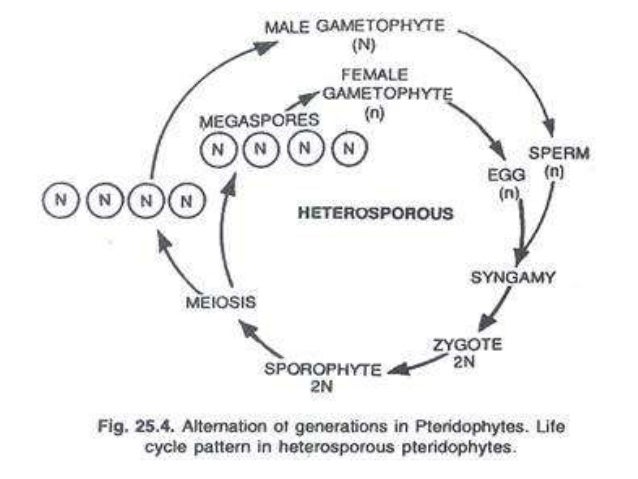



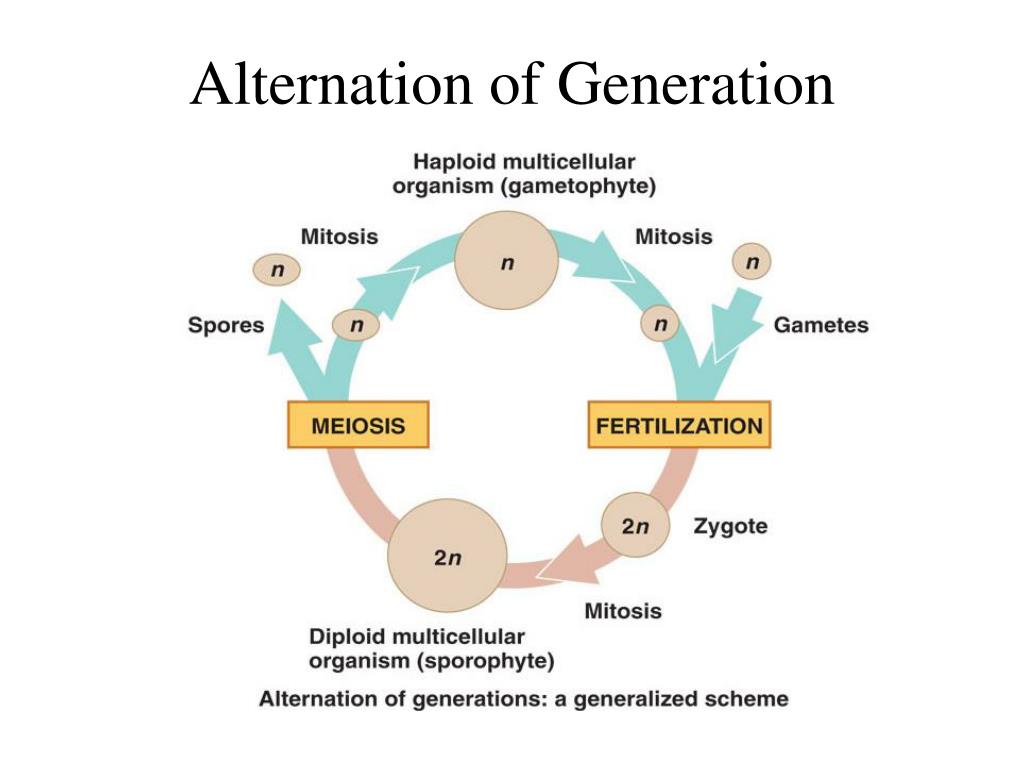














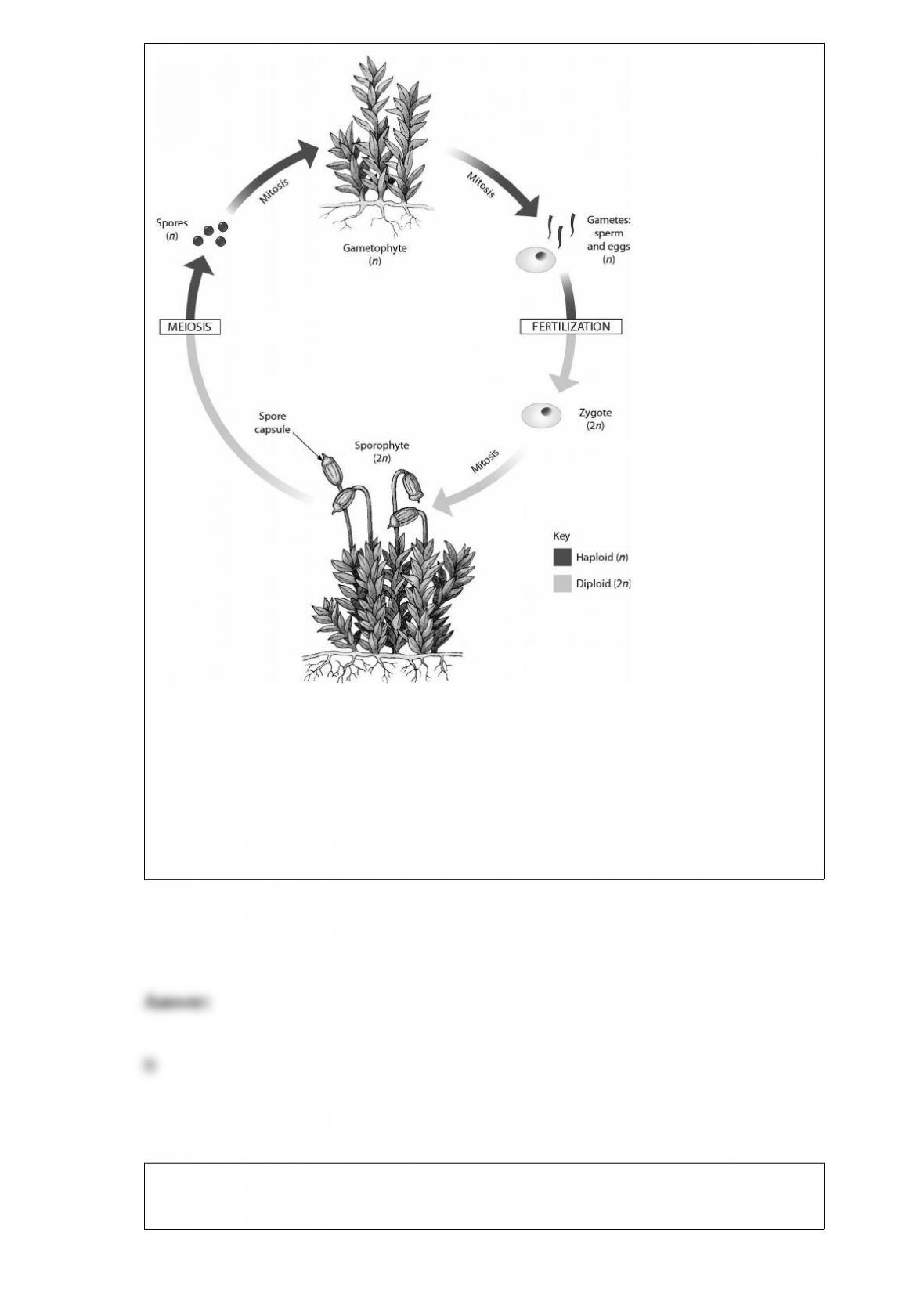


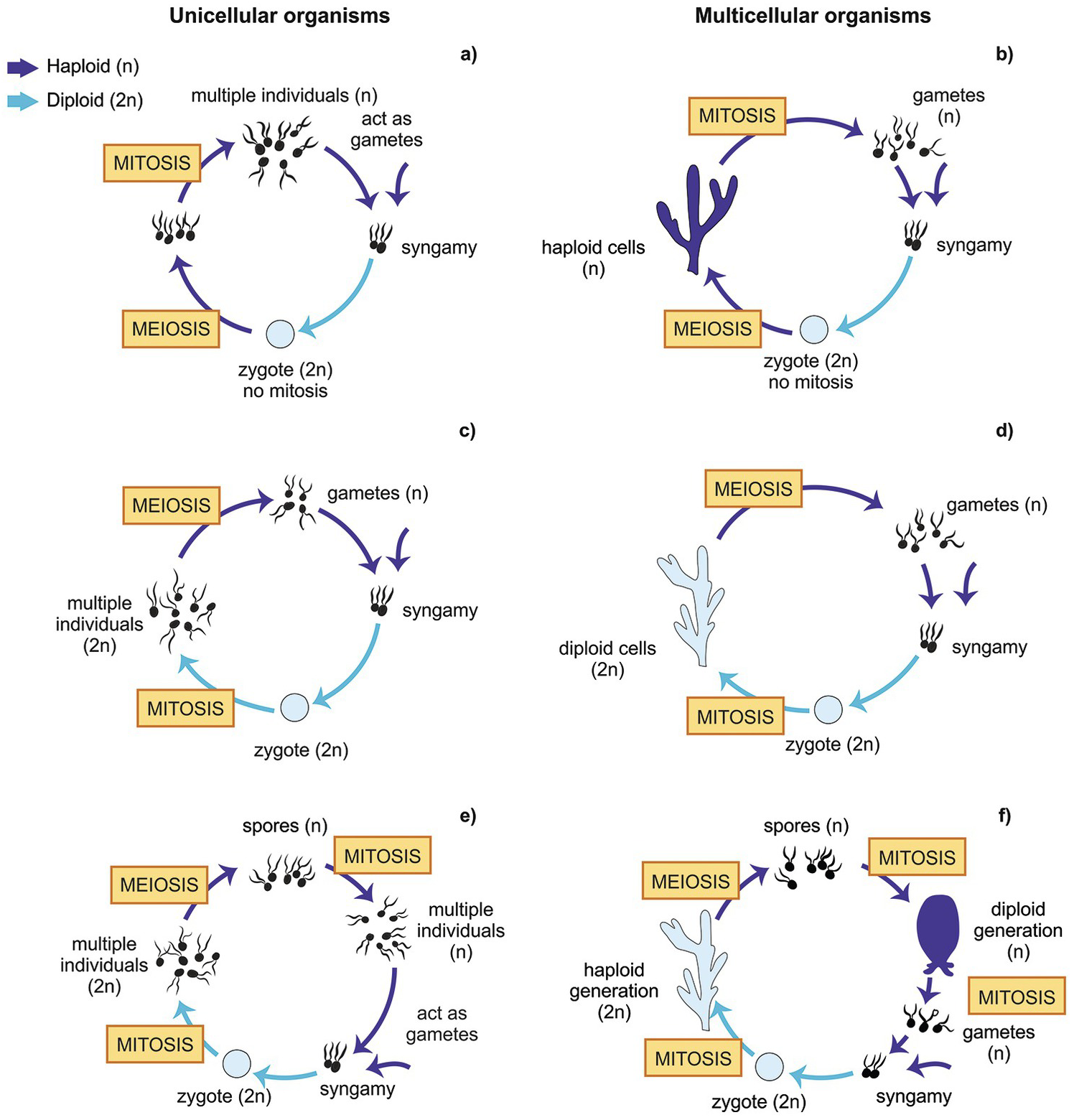
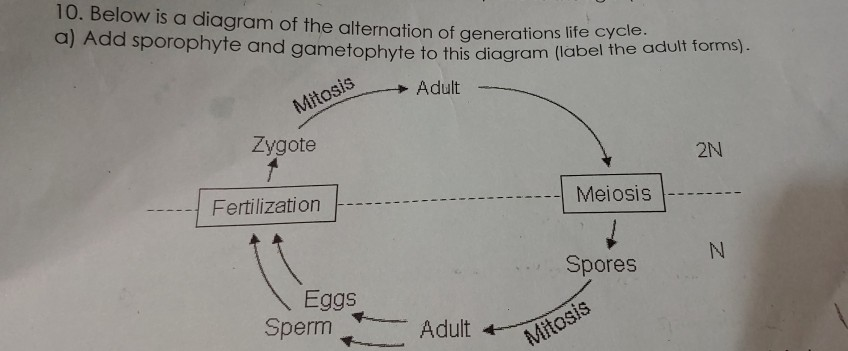
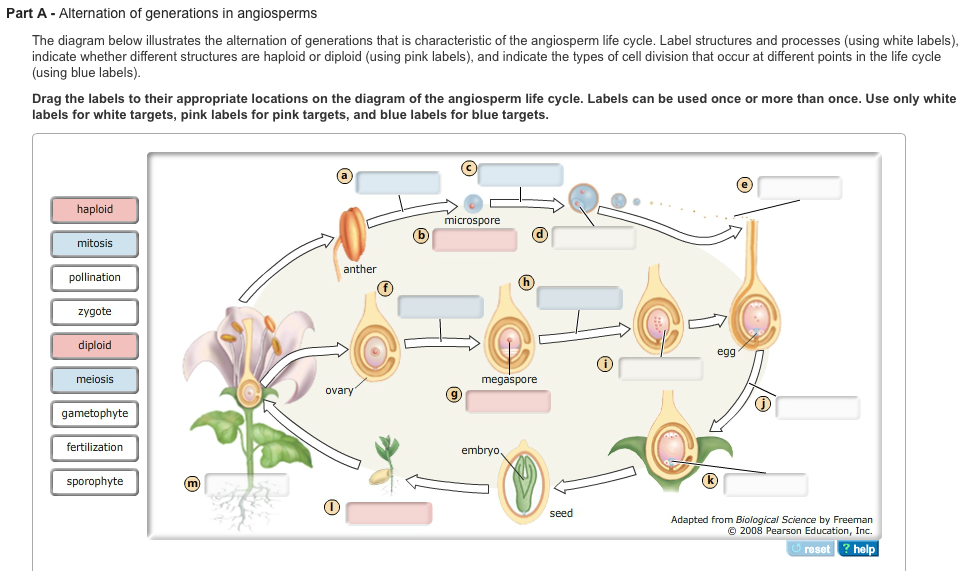


0 Response to "40 diagram of alternation of generations"
Post a Comment